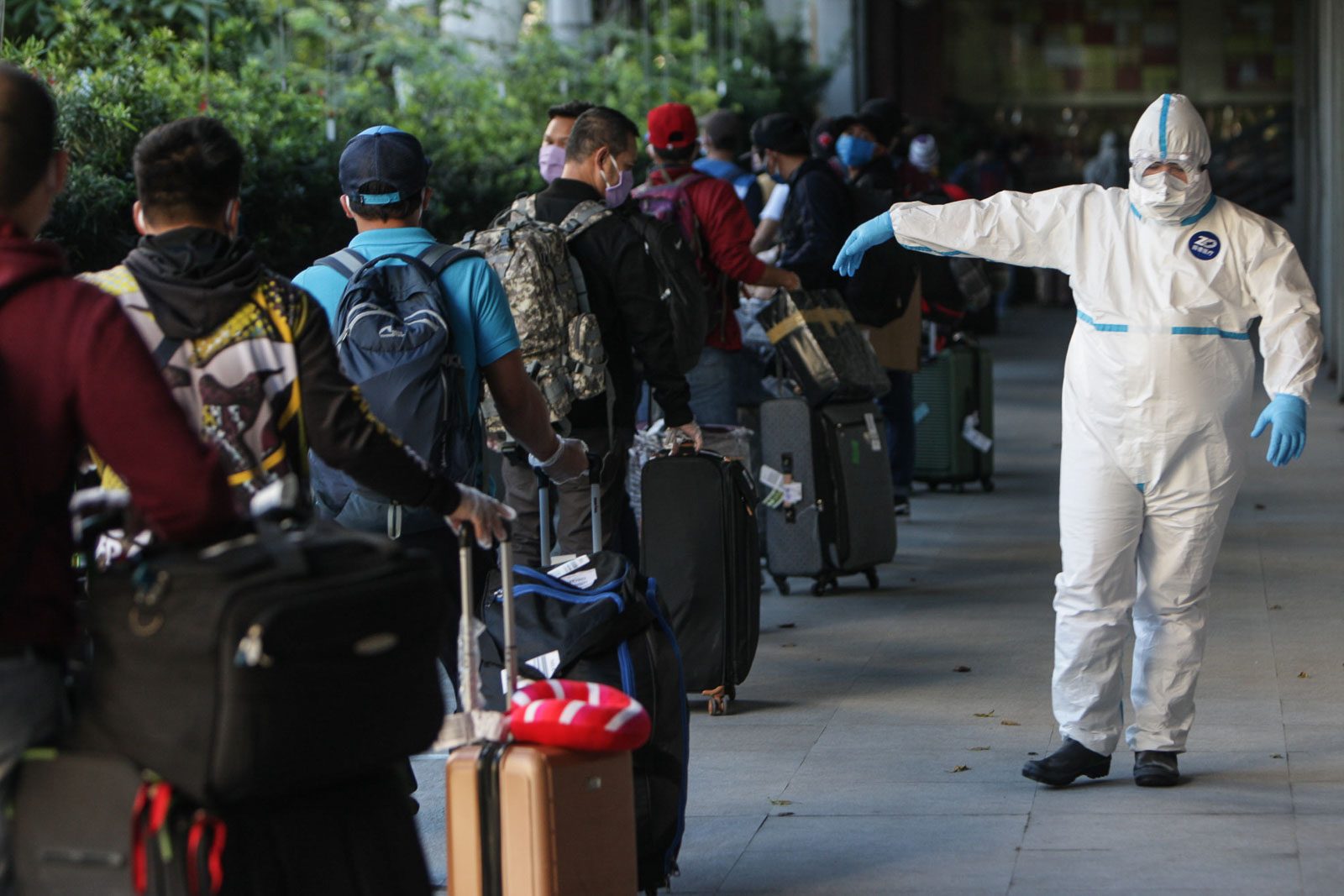SUMMARY
This is AI generated summarization, which may have errors. For context, always refer to the full article.

MANILA, Philippines – The Department of Labor and Employment (DOLE) has released its guidelines for disenfranchised overseas Filipino workers (OFWs) who are eligible for its cash assistance program as the coronavirus outbreak continues to sweep the world.
Dubbed the DOLE-AKAP, the program involves giving $200 or P10,000 or its equivalent to the local currency of the country where an OFW is staying, to help the workers get by during the crisis.
We explain below who are covered by the program according to DOLE’s Department Order No. 212.
Documented or not?
The program covers regular and documented OFWs, certain undocumented OFWs, and balik-manggagawa or OFWs who could not return to their host country because of the Philippines’ ongoing lockdown.
To prove that one is regular and documented, OFWs must have a valid passport and appropriate visa or permit to stay and work in the receiving country. The OFW’s contract should have been processed by the Philippine Overseas Employment Administration or the corresponding Philippine Overseas Labor Office (POLO).
Undocumented OFWs covered by the program include OFWs who were once documented but “for some reason or cause” have lost their documented status; undocumented OFWs who have undertaken actions to regularize their contracts or status; and undocumented OFWs who are Overseas Workers Welfare Administration members.
How to qualify
The memorandum gave 3 criteria that the OFW must meet to become eligible, namely:
- The OFW must have experienced job displacement due to the receiving country’s lockdown or quarantine, or because of infection of coronavirus.
- The OFW should have presence in overseas jobsites, or in the Philippines as balik-manggagawa, or already repatriated in the Philippines.
- The OFW must not receive any financial support or assistance from receiving countries or employers.
Which countries are covered?
According to the memorandum, the following countries are covered by the program:
Middle East and Africa
- Bahrain
- Israel
- Jordan
- Kuwait
- Lebanon
- Libya
- Oman
- Qatar
- Saudi Arabia
- United Arab Emirates
Asia Pacific
- Australia
- Brunei
- Hong Kong
- Japan
- Korea
- Macau
- Singapore
- Taiwan
- Malaysia
- New Zealand
Europe and America
- Canada
- Cyprus
- Italy
- Germany
- Greece
- Spain
- Switzerland
- United Kingdom of Great Britain
- United States of America
How to apply
OFWs need to submit the following to their POLOs:
- Application form for special cash assistance from POLOs
- Copy of passport or travel document
- Proof of overseas employment
- Proof of loss of employment due to the coronavirus outbreak
- For the undocumented: Proof that the OFW is involved in a case like case reference number or case endorsement stamped by POLO
The POLOs will evaluate the documents within 5 working days and the applying OFW will be updated within 5 working days.
If approved, the OFW will receive the money through bank transfer or cash remittance.
For the balik-manggagawa, below are the documents needed:
- Application form for special cash assistance
- Copy of passport or travel document
- Proof of overseas employment
- Proof of loss of employment
The same process of evaluation and transfer applies for the balik-manggagawa. – Rappler.com
Add a comment
How does this make you feel?
There are no comments yet. Add your comment to start the conversation.